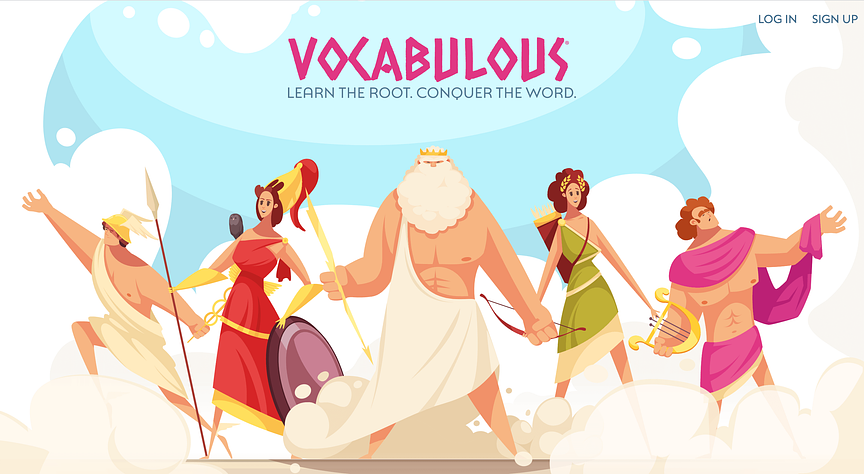Many children enter secondary school with a limited vocabulary; if students are unable to access the language of their lessons, they risk falling behind and not achieving their full potential. Too many vocabulary programmes focus on teaching lists of words, aiming to improve students' vocabulary one word at a time, rather than giving students the skills they need to work out words independently.
Vocabulous is an innovative online resource to aid targeted and explicit vocabulary teaching in English lessons. Vocabulous uses Latin and Greek root words and prefixes to teach word patterns. Students then use these patterns to work out the meaning of unknown words which share the same root. For example, the root “scrip” meaning “write” can help students understand “inscription”, “manuscript” and “transcription”.
Alex Quigley notes that “over 90% of the vocabulary of academic texts in school has Latin and Greek origins and therefore teaching etymology has positive implications for cracking the academic code of school".
Students each have an individual login to the site and complete quizzes to win stars and climb their class’ leader board. Teachers can see students' progress over time, export progress data and print certificates to reward good work. There are badges to collect, more than 40 root words to learn and over 1,000 English words to conquer.
Vocabulous was founded in 2021, and after two years of development and trials, launched publicly in 2023. So far, we have worked with over 70 schools across the UK and overseas and have reached over 23,000 students. We are continuing to expand by launching a programme for primary schools (for students aged 9-11) in September 2025, and will expand our secondary programme to provide content for more age groups in 2026.
Vocabulous was the focus of a research project by Dr Arlene Holmes-Henderson, funded by Christ Church, Oxford, which showed that there was an upward trend in pupils' ability to recognise and use new vocabulary.
Check out the website at www.vocabulous.co.uk or follow us on social media @VocabulousUK. There's lots of information on the About page showing how you could incorporate Vocabulous into your curriculum.
If you want to get in touch directly, email info@vocabulous.co.uk and we'd be very happy to chat about Vocabulous!


